7 Compelling Reasons Diesel Generators Are the Gold Standard in Backup Power
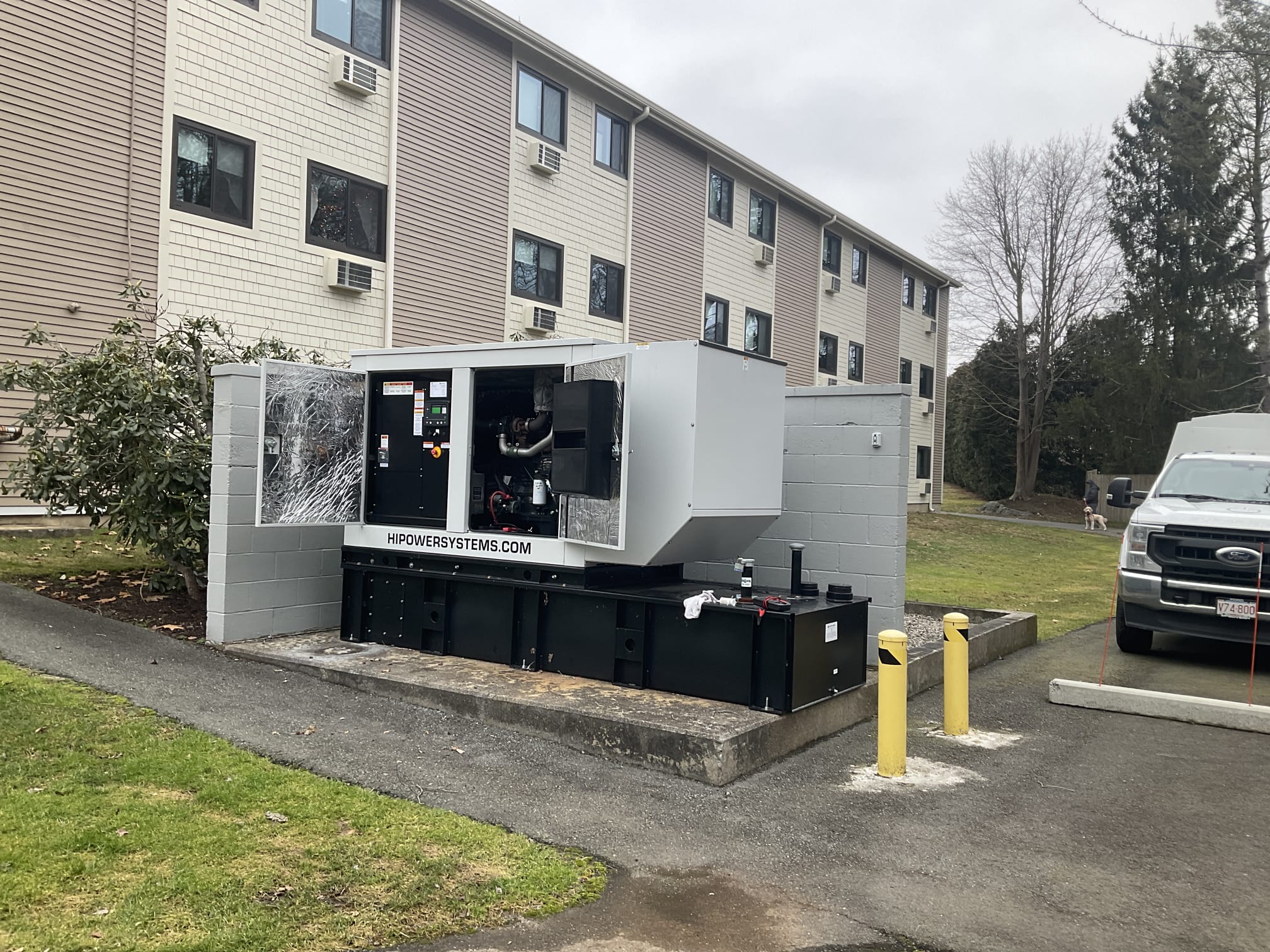
In the world of backup power solutions, diesel generators have long held their position as the go-to choice for businesses across a variety of industries. While alternatives such as gasoline, propane, and natural gas generators are available, diesel generators consistently emerge as the preferred option for critical applications. Here’s why diesel generators are the industry standard.
Table of Contents
Fuel Efficiency and Energy Density
One of the most significant advantages of diesel fuel over gasoline, propane, or natural gas is its energy density. Diesel contains more energy per gallon than other fuels, which translates into better fuel efficiency and longer runtimes. This is critical for industries that rely on continuous power over extended periods, such as healthcare facilities, data centers, and manufacturing plants.
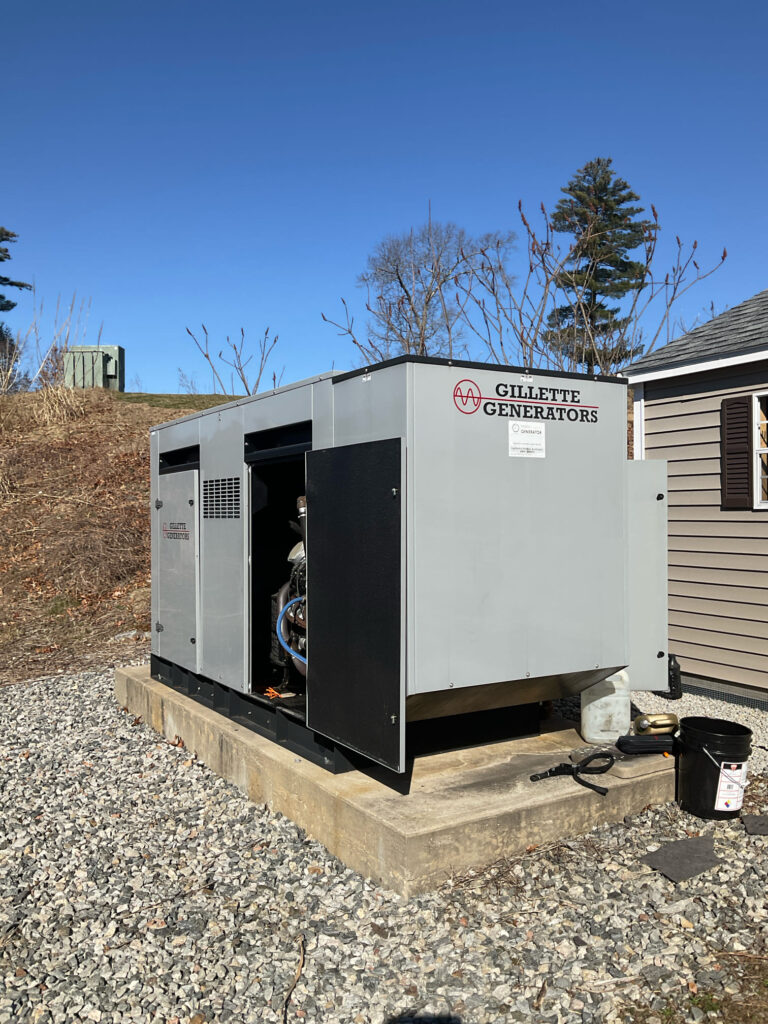
Durability and Longevity
Diesel engines are known for their robust construction and durability, which make them better suited to handle heavy loads and extended operation times. Diesel generators are designed to run for thousands of hours with proper maintenance, significantly outlasting gasoline-powered units. This longevity reduces the need for frequent replacements, saving businesses both time and money in the long run.
In contrast, gasoline engines are often built for short-term use, making them less reliable for industries that require sustained backup power over several days or weeks.
Power Output and Scalability
Diesel generators are available in a wide range of sizes and can provide substantial power output, making them ideal for industrial and commercial applications. Whether powering a grocery store, a nursing home, or a large university, diesel generators can easily scale up to meet the demands of heavy-duty operations.
While propane and natural gas generators are effective in smaller or residential settings, they often struggle to match the high-power output and scalability required for larger facilities.
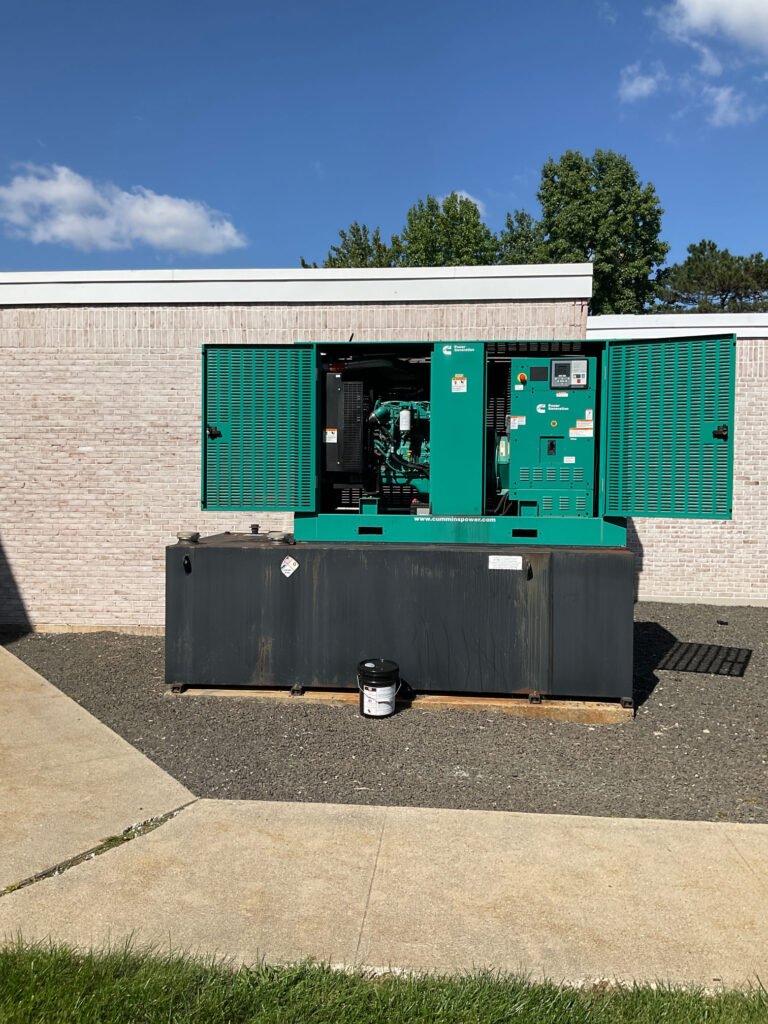
Safety and Storage
Diesel is a safer fuel compared to gasoline and natural gas due to its lower volatility. It has a higher flash point, which means it is less likely to ignite spontaneously. Additionally, diesel fuel can be stored for extended periods with proper treatment, making it a reliable choice for businesses that need long-term power reserves.
Natural gas and propane generators often rely on an external fuel supply or pipeline, which can be vulnerable in a disaster scenario, especially earthquakes. Diesel fuel, on the other hand, can be stored on-site, giving businesses greater control over their backup power resources.
Maintenance and Reliability
Diesel generators are known for their simple mechanical design, which contributes to easier maintenance compared to gasoline or natural gas units. With fewer components that could fail, diesel engines experience fewer breakdowns, ensuring more reliable operation during emergencies. Regular maintenance, such as oil changes, coolant checks, and fuel polishing, ensures that diesel generators stay in top condition for years.
Natural gas generators, in contrast, require more complex systems, which can increase the risk of malfunctions and make maintenance more costly and time-consuming.
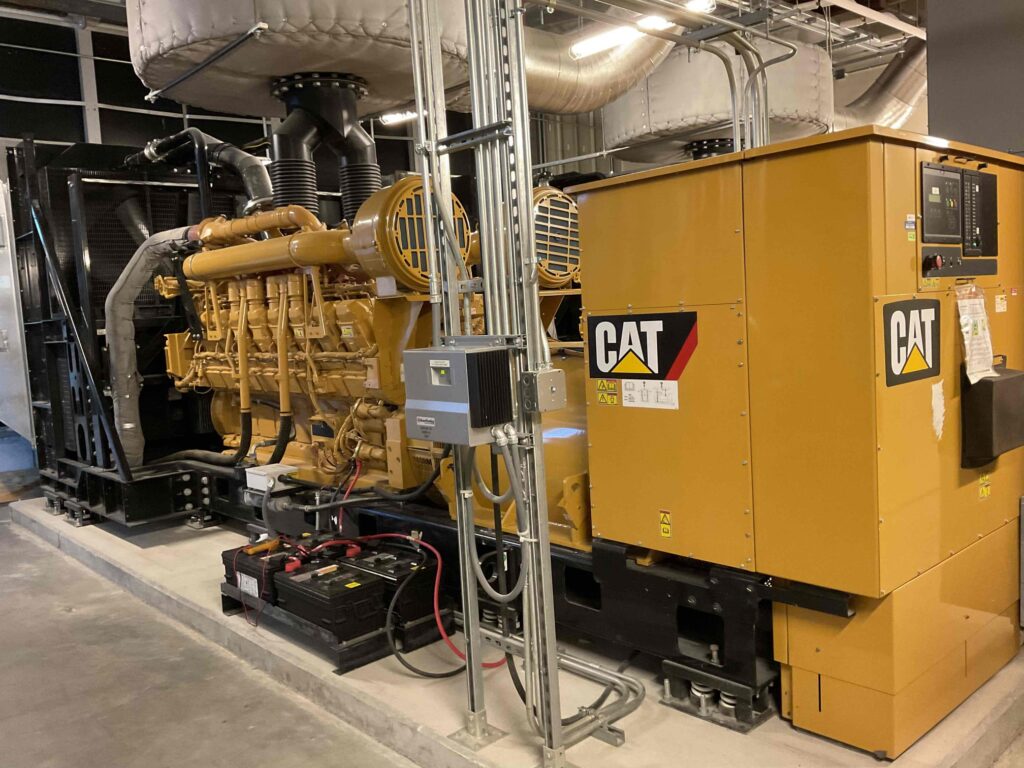
Fuel Availability
In an emergency, such as a natural disaster, access to fuel can be a concern. Diesel fuel is widely available and can be delivered in bulk, even during widespread power outages. Gasoline supplies may become scarce or prioritized for emergency vehicles, while natural gas supplies may be interrupted if pipelines are damaged. Propane tanks also require specialized deliveries and can run out more quickly.
For industries that need guaranteed access to fuel in an emergency, the availability of diesel becomes a significant advantage.
Environmental Impact
While diesel generators have faced scrutiny over emissions, advances in technology have made modern diesel generators cleaner and more environmentally friendly. Features like diesel particulate filters (DPF) and selective catalytic reduction (SCR) systems have significantly reduced the emissions produced by diesel engines. Tier 4 diesel generators, in particular, meet stringent environmental regulations while maintaining the performance and reliability diesel is known for. Alternative fuels like biodiesel can be used with some modern diesel generators, reducing their carbon footprint and making them a viable option for businesses looking to meet sustainability goals.
Additionally, because diesel engines are more fuel-efficient, they burn less fuel per kilowatt-hour of electricity produced, which can lead to fewer overall emissions compared to less efficient gasoline generators.
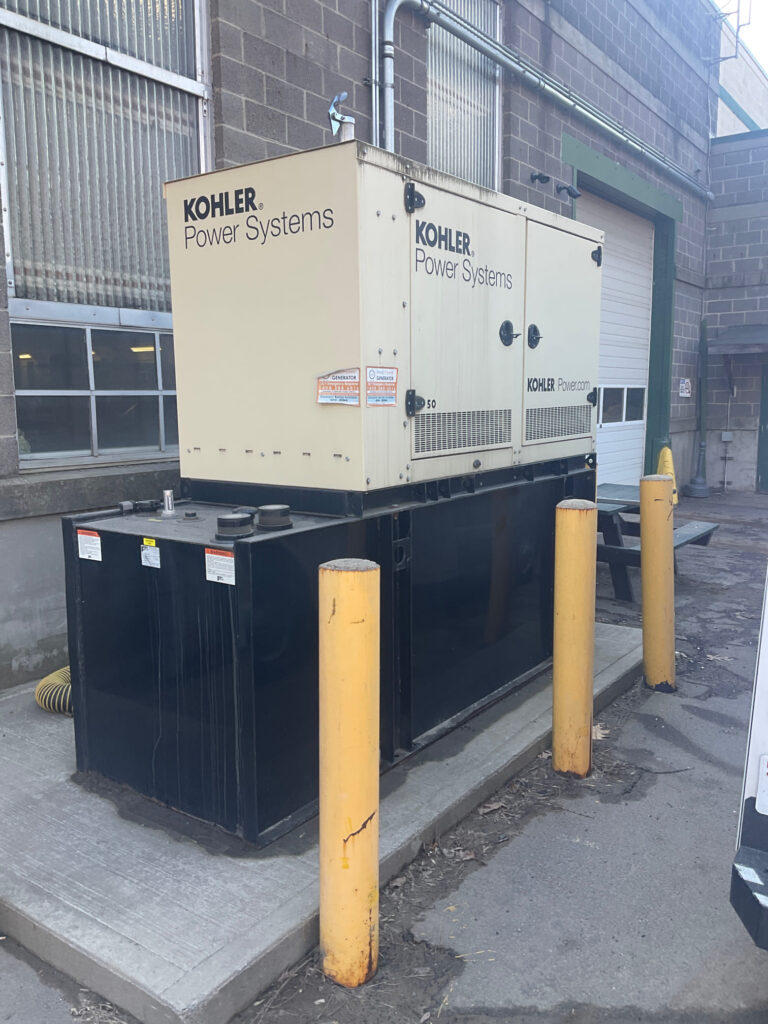
Conclusion
When considering a backup power solution, the choice of fuel type is crucial. Diesel generators stand out as the industry standard for their unmatched fuel efficiency, reliability, durability, and scalability. While gasoline, propane, and natural gas generators have their place in smaller-scale applications, businesses in critical industries rely on diesel generators to ensure uninterrupted power when it matters most. With proper maintenance and care, a diesel generator can serve as a long-term investment that safeguards your business from costly downtime during emergencies.
For those seeking a reliable, high-powered solution, diesel remains the preferred choice.
Contact us if you are interested in purchasing a new generator. Our team offers turnkey installations for new backup power systems.
